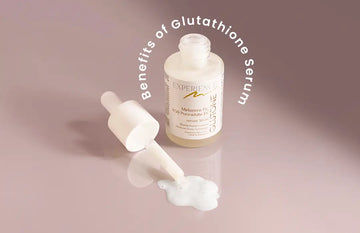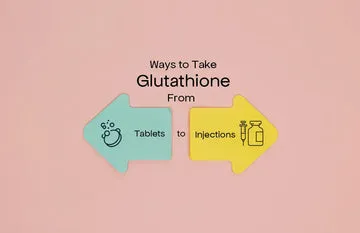Collagen has become the star of modern beauty supplements, praised for its ability to boost skin elasticity, hydration, and glow. But when shopping, you’ll often see two terms — marine collagen vs hydrolyzed collagen — and wonder, what’s the difference? And more importantly, which one is better for your skin?
This blog breaks it down clearly so you can choose the right collagen source for your beauty routine.
What is Marine Collagen?
Marine collagen is derived from the skin, scales, and bones of fish. It is naturally rich in Type I collagen — the same collagen type most abundant in human skin. Because of its smaller particle size, marine collagen is highly bioavailable, meaning it’s absorbed quickly and used efficiently by the body to repair skin, improve firmness, and restore hydration.
What is Hydrolyzed Collagen?
Hydrolyzed collagen refers to collagen that has been broken down into smaller peptides (collagen peptides) through hydrolysis. This process makes collagen easier for the body to digest and absorb. Hydrolyzed collagen can come from different sources — bovine, porcine, chicken, or marine.
So, while marine collagen is a source, “hydrolyzed collagen” is more of a process. In fact, most collagen supplements available today are hydrolyzed for better absorption.
Marine Collagen vs Hydrolyzed Collagen: Key Differences
|
Aspect |
Marine Collagen |
Hydrolyzed Collagen |
|
Source |
Extracted from fish (skin, scales, bones). |
Can come from bovine, porcine, chicken, or marine sources. |
|
Type of Collagen |
Rich in Type I collagen, most beneficial for skin, hair, and nails. |
Varies by source — can be Type I, II, or III. |
|
Absorption |
Naturally smaller peptides; highly bioavailable. |
Hydrolysis makes collagen from any source more digestible. |
|
Sustainability |
Eco-friendly as it uses fish by-products. |
Depends on the source; may not always be sustainable. |
|
Skin Benefits |
Best suited for anti-ageing, hydration, and glow. |
Effective, but benefits may vary depending on the collagen type. |
The comparison between marine collagen vs hydrolyzed collagen highlights that the two terms aren’t interchangeable. Marine collagen refers to collagen sourced from fish, naturally rich in Type I collagen — the form most beneficial for skin elasticity, hydration, and glow. Hydrolyzed collagen, on the other hand, describes the process of breaking collagen into smaller peptides for easier absorption, regardless of source. While both can support skin health, marine collagen in hydrolyzed form offers superior bioavailability, sustainability, and more direct anti-ageing benefits for visible radiance.
Which is Better for Skin Health?
If your focus is on glowing, youthful skin, marine collagen has the edge. Since it closely matches the collagen found in human skin and is absorbed efficiently, it supports hydration, elasticity, and wrinkle reduction more directly than other sources. Hydrolyzed bovine or porcine collagen may also benefit skin but often contains more Type II or III collagen, which is geared toward joint or cartilage health.

Why Choose Glutone-Revive
Among the many collagen products available, Glutone-Revive stands out as a premium marine collagen tablet. Each serving provides:
-
Wellnex® Di-peptide Marine Collagen (2500 mg)
Hydrolyzed for maximum absorption, clinically proven to improve elasticity, hydration, and skin smoothness within 8–12 weeks.
-
Vitamin C (500 mg)
Enhances collagen synthesis and offers added antioxidant protection
This dual-action formula doesn’t just deliver collagen — it ensures your body can use it effectively to build firmer, younger-looking skin.
Glow Timeline with Marine Collagen
With consistent use of Glutone-Revive marine collagen tablets, your skin gradually transforms from the inside out.
-
4 Weeks
You’ll notice improved hydration levels as marine collagen peptides help the skin retain moisture more effectively. Texture feels smoother, and early dullness begins to fade.
-
8 Weeks
Collagen fibres start to rebuild, leading to a visible reduction in fine lines and better firmness. Skin elasticity improves, making your face look fresher and more youthful.
-
12 Weeks
By the three-month mark, results are far more noticeable. Skin appears plumper, radiant, and healthier overall, with a visible glow and fewer wrinkles.
Consistency is the secret — taking your daily dose of Glutone-Revive, paired with sunscreen and proper hydration, ensures long-lasting results. This routine not only reduces signs of ageing but also gives your skin the resilience it needs to withstand environmental stressors.
How to Choose the Right Supplement
When deciding between collagen options, keep these factors in mind:
-
Source: Look for marine collagen if your goal is skin glow and anti-ageing.
-
Form: Hydrolyzed collagen peptides (like in Glutone-Revive) are more bioavailable.
-
Synergy: Choose supplements combined with Vitamin C, as it supports collagen synthesis.
-
Quality: Always pick clinically tested, branded ingredients for safe, visible results.
When it comes to marine collagen vs hydrolyzed collagen, marine collagen in hydrolyzed form is the best choice for skin. It delivers superior bioavailability, is rich in Type I collagen, and directly supports hydration, firmness, and glow. For anyone serious about radiant skin, Glutone-Revive marine collagen tablets offer a science-backed solution with the added benefit of Vitamin C for optimal results.








 Mon to Sat - 10 am to 7 pm
Mon to Sat - 10 am to 7 pm